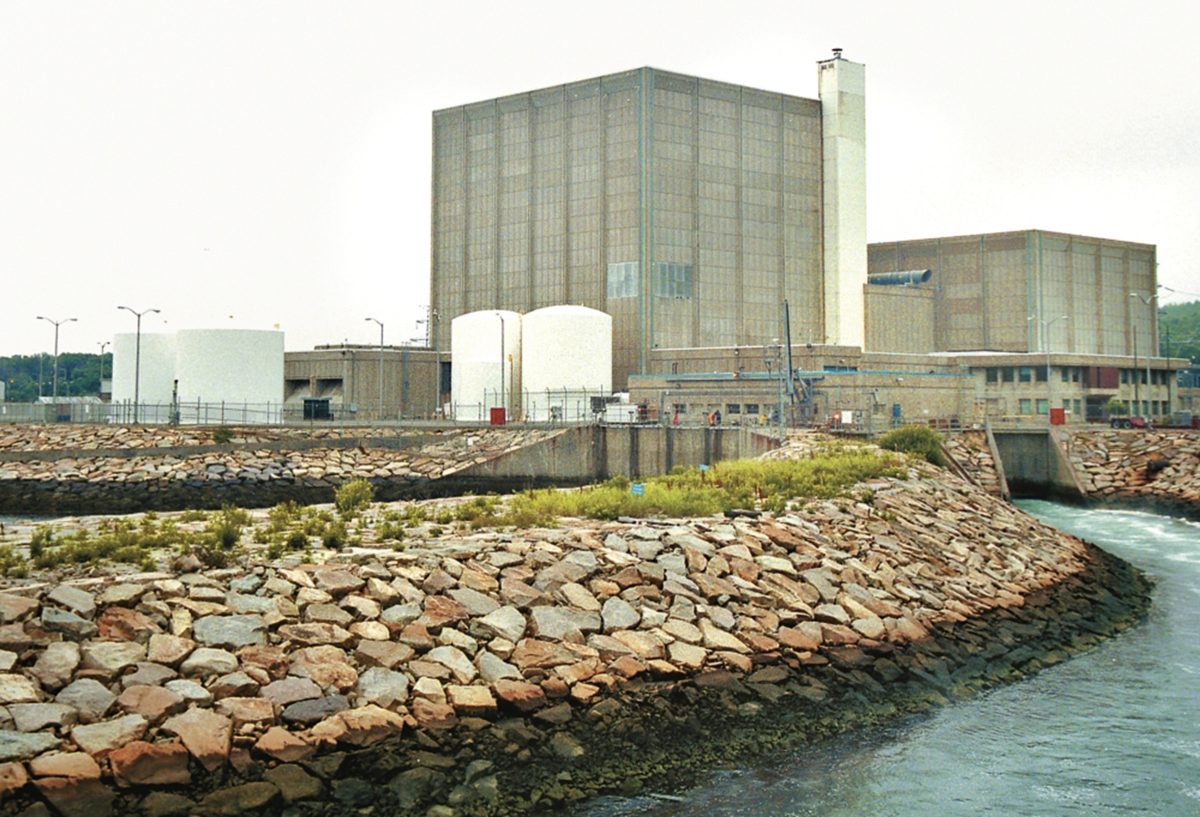Federal inspectors found that Holtec Decommissioning International, the company dismantling the Pilgrim nuclear power plant, failed to establish controls to prevent a worker from being exposed to radiation earlier this year.
The Nuclear Regulatory Commission, however, found the violation of “very low-level safety significance” when they visited the closed plant on several occasions between May 20 and June 27.
According to the inspection report, on April 2, a worker was exposed to radiation after inadvertently bumping into the reactor vessel head in a crowded space under the vessel. The contact sent radioactive particles into the air, but also brushed radioactive dirt on the worker’s protective clothing.
The worker inhaled or ingested material that caused 132 millirems of internal exposure, well below the 5,000 millirems of maximum annual exposure the NRC allows workers in nuclear plants. The average American receives 620 millirems of exposure a year, according to the NRC.
The inspectors found that the worker did not have respiratory protection and that Holtec did not provide temporary ventilation while the work was being performed.
The incident prompted a letter from an anonymous “whistleblower” to state officials and Cape Downwinders, a citizens watchdog group.
In a letter to Holtec, Elise Eve, leader of the NRC’s decommissioning team, said the company will not be cited, because the violation was minor in nature, it was unintentional, and Holtec has already taken action to prevent its recurrence.
But Diane Turco, director of Cape Downwinders, said the incident – and regulators’ reaction to it – is troubling.
“This latest inspection report confirms what the whistleblower letter writer has been saying, that not only does Holtec violate safety regulations, but they are not held accountable by the Nuclear Regulatory Commission,” Turco said.
Holtec said that safety at the plant is paramount.
“We take this, and all violations seriously,” said company spokesperson Patrick O’Brien, in an email. “Our number #1 focus is on safety, especially nuclear safety and the safety of our workforce. We have put corrective actions in place to try to avoid this type of issue in the future.”
The plant, which began generating electricity in 1972, shut down in 2019 after a long decline in demand for nuclear-generated electricity.
Fred Thys can be reached at fred@plymouthindependent.org

